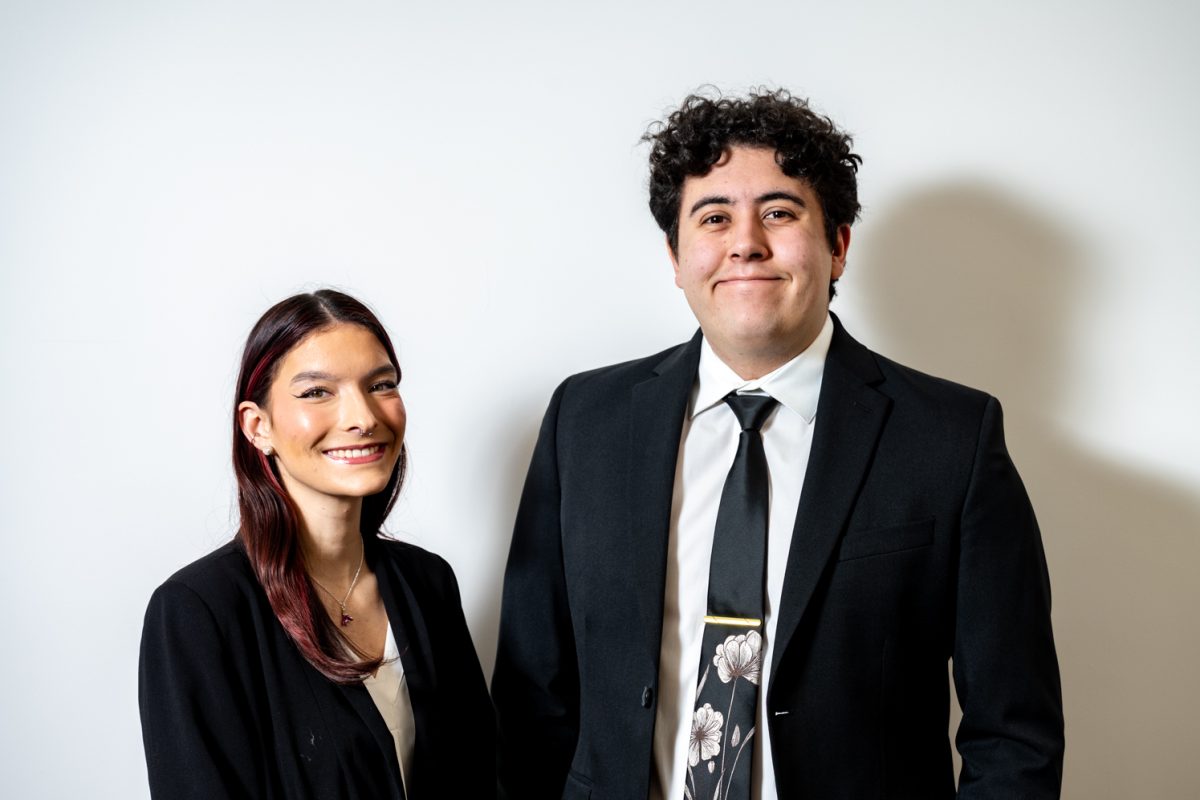It’s not all about the psyche in this psychology class. I did some nosing around to get a taste of what PSY 252, Mind, Brain and Behavior could teach me about senses.
This week, I sat down with Nathaniel Douda, a 6th year Ph.D. candidate and a member of the teaching fellowship program for psychology. Douda teaches PSY252, which teaches undergraduates about how physiological processes interact with cognitive, in addition to other psychological lessons.
“In class, part of what we discuss includes sense of smell and sense of taste,” Douda said. “We have this thing called the common chemical sense.”
The common chemical sense is responsible for the body’s reactions to outside substances that enter the body and serve as a potential threat.
“When you cut onions, you cry,” Douda said. “The sulfur compounds in the onions mix with your tears and essentially turn into acid and we cry to get the substance out of our eyes.”
Another example is eating or even smelling spicy foods and experiencing a runny nose or sweating. The body is trying to eliminate an irritable substance that it deems potentially noxious. Douda said that smelling and tasting are two senses that go hand-in-hand.
“Tastes aren’t really just our taste, they’re a combination of our taste sense, textures, smells, experiences and expectations,” Douda said. “All of these things integrate to give us one of the tastes we can perceive, such as salty, sour, bitter, sweet and umami, which means savory.”
Douda described the genetics behind how it is possible for people to taste the exact same substance in a different way.
“There’s this nice genetic difference between people where they fall along a spectrum of non-tasters, tasters and supertasters,” he said.
According to Douda, supertasters are the dominant gene. They are born with higher numbers of the little bumps on the tongue, known as papilla, and are generally thought to have more taste buds than others. This results in an elevated sensitivity and likely a “pickiness” to more foods, specifically those that are bitter. People that are considered supertasters are more likely to have a stronger aversion than tasters and non-tasters to black coffee, grapefruit, alcohol, smoking and spicy foods.
“Tasters are just sort of in the middle of the spectrum,” Douda said. “But non-tasters are generally less picky eaters, because they’re less sensitive to bitter compounds.”
Remember as kids, when eating something we considered to be gross called for plugging our noses and quick gulping it down? Or maybe you’re like me and still do that to this day. Douda explained that because the sense of smell contributes to the perception of how things taste, a plugged nose does indeed affect taste.
“If your nose is stuffed, you’re cutting out a big chunk of that actual flavor perception,” Douda said. “There’s a pathway called the retronasal pathway from your mouth to your nose, so when you eat or drink, the actual food molecules travel from your mouth to your nose, which is why your nose is such a big player in taste.”
We taste and smell a lot of things everyday that leave lasting marks on our lives. Douda recalled one of his own experiences.
“If you’ve ever had pizza rolls, they always come out of the oven at liquid magma temperature and they almost always burn some part of your tongue,” Douda said. “You’ve essentially damaged the papilla or those little bumps on your tongue.”
But rest assured, Douda said. Those little bumps will regenerate completely in a little under two weeks.
Collegian Reporter Jessie Trudell can be reached at news@collegian.com or on Twitter @JessieTrudell.




